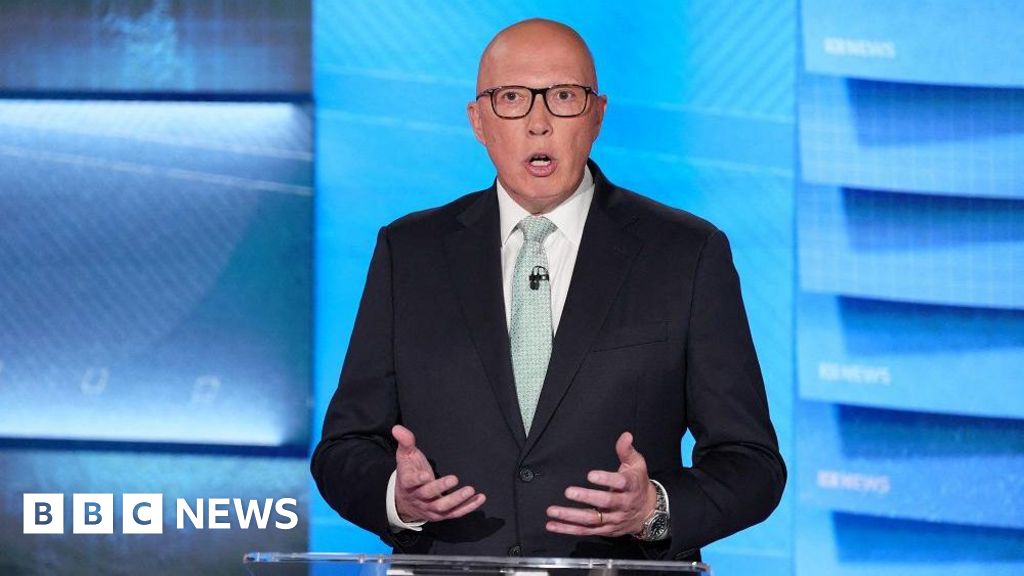ARTICLE AD BOX
By Matt McGrath
Environment correspondent
How much of an impact on UK lifestyles will the government's goal of net zero carbon emissions really have?
A new report says that while the 2050 target will require significant efforts from consumers, these should not result in "massive lifestyle changes".
The study from the Tony Blair Institute for Global Change says that limitations on flying would need people to cut their travels by plane by 6% by 2035.
For cars, the paper says that journeys should be cut by just 4%.
Net zero is the phrase that is used to mean that any CO2 emissions that can't be curbed by clean technology by 2050 will either be buried using carbon capture and storage, or soaked up by plants and soils.
This new report poses two key questions about that idea - what changes will people need to make in their lives to achieve it, and are they ready to make these changes?
The study points out that most of the reductions in emissions to date have been achieved mainly by changing the nature of how we generate electricity.
But reaching the UK's legally binding emissions targets for 2030, as well as hitting the net zero figure by 2050, will require "significant behavioural changes from consumers (and voters) across the country".
A "politically deliverable" pathway to net zero, the Blair Institute report says, is one that "focuses on a limited number of specific behaviour changes, minimises the need for massive lifestyle changes such as an end to flying or mass conversion to plant-based diets."
This view is shared by many environmentalists.
"Most of the solutions needed to beat climate change can and should be designed to bring minimal disruption to our daily lives," said Caterina Brandmayr from Green Alliance.
"Where some degree of change is required, politicians should be clear with the public about what's needed and make clear the wealth of benefits that would also follow, from cost savings to more comfortable homes and better health."
So according to the study, the distance that people fly should be reduced by 6% per person, meaning most will still be able to fly when going on holiday in 30 years time.
"I think you'll see changes to aviation by 2050, you'll see sustainable fuels and hydrogen, you'll see electric planes for shorter journeys," said Jess Ralston from the Energy and Climate Intelligence Unit.
"Look at what's happened in the last 30 years, we have the internet, we've changed the power system completely. The world is a very different place than 30 years ago, and it will be again in 2050. So I've got no doubt that we'll also still be flying on our holidays in 2050."
While the majority may still be able to head for the airport in the decades to come, for a minority it's likely to be a lot more expensive.
In England in 2018, just 10% of people who flew frequently were responsible for more than half of all international flights.
Just under half the population didn't take a single flight that year.
If the government really wanted to make a dent in aviation emissions, many experts believe it would make more sense to tax these very frequent flyers.
When it comes to driving the report points out that by 2035 people will need to be behind the wheel around 4% less than they are at present.
image sourceGetty Images
image captionElectric car charging infrastructure will be key to a successful switch from petrol and dieselBut the report also says that by then, around 60% of the car fleet is expected to be battery electric, as will all new vehicles sold.
This is a significant change and will require huge investment in infrastructure so that people can charge their shiny new EVs. That type of spending might keep costs high.
"Alternative technologies will improve the quality of air that we breathe, which in turn, will improve the health of many - particularly as we move away from petrol and diesel forms of transport," said Sir David King, a former government chief scientific adviser and now head of the Climate Crisis Advisory Group.
"We are already seeing an uptake of walking and cycling among consumers. However, a rapid transition to these alternative technologies requires progressive regulation to drive the transition, and in the short term at least, this will equate to rising costs for businesses."
On diet, the Blair Institute report restates the position of the Committee on Climate Change, which earlier this year advised the government that people should eat 20% less meat and dairy by 2030, rising to 35% less by 2050.
A key aspect of achieving this change will be economic.
"One of the big issues is people can see that meat usually is a lot cheaper than it should be. And therefore, we have an issue of inequality," said Prof Mark Maslin from University College London.
"So trying to actually allow people on low incomes to have a more plant based diet is really important."
image sourceFarm Images
image captionThe Committee on Climate Change has recommended a 20% reduction in beef and dairy consumption by 2030Putting the right incentives in place to nudge people to more climate friendly diets is one thing. Getting them to change their boilers is quite another.
The Blair Institute study points out that by 2035 around 40% of homes would need to use low carbon heating systems.
This is one of the biggest challenges facing government when it comes to net zero.
Recent media reports indicate that the government is growing quite cool on the subject.
A full ban on existing gas boilers is now thought unlikely by 2035.
image sourceGetty Images
image captionChanging home heating away from gas will be a challengeExperts say it is worth bearing in mind that some of the proposed replacement technologies such as heat exchangers have added benefits in a warming climate.
"With the heat exchangers, of course they do heating and cooling," said Prof Maslin.
"So for at least at least a couple of weeks per year now and then probably a month or so in about 10 or 20 years time, you'll be wanting air conditioning in your house or your flat or apartment."
Although the Blair Institute report emphasises that major lifestyle changes shouldn't be necessary, some scientists argue that this will only be the case as long as all the other policies to cut carbon are working.
So if replacing boilers doesn't go as fast as planned, it may well be that greater restrictions on emissions linked to consumer behaviour may be needed to make up the shortfall.
Follow Matt on Twitter @mattmcgrathbbc.

 3 years ago
246
3 years ago
246








 English (US) ·
English (US) ·